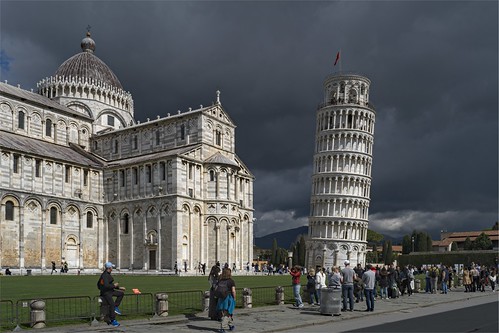U.S. strikes Iranian facility in Syria amid attacks on American troops
Wash #Wash

Comment on this storyCommentAdd to your saved storiesSave
The U.S. military launched an airstrike in eastern Syria on Wednesday, U.S. officials said, marking the Pentagon’s latest use of force as President Biden looks to halt attacks against American troops and prevent the war in Gaza from metastasizing into a larger conflict.
The announcement, made by Defense Secretary Lloyd Austin, coincided with the disclosure that an American surveillance drone had been shot down off the coast of Yemen. Houthi forces there have long received weapons from Iran.
In a statement, Austin said that the operation in Syria, carried out by a pair of F-15 fighter jets, hit a weapons storage facility used by Iran’s Islamic Revolutionary Guard Corps and affiliated groups.
President Biden, who authorized the strike, has “no higher priority than the safety of U.S. personnel,” Austin said. The United States, he added, is “fully prepared to take further necessary measures to protect our people and our facilities.”
U.S. warplanes carried out a similar operation late last month in response to the repeated targeting of American positions in Iraq and Syria. There have been numerous attacks on U.S. personnel since then and at least 40 overall since the war between Israel and Hamas reignited in early October.
While the Pentagon has characterized the incidents, all involving a mix of one-way drones and rockets, as “harassing” in nature, about 45 U.S. troops have suffered some form of injury, raising concern that an American service member could be killed. A spokesman, Brig. Gen. Patrick Ryder, said Monday that two individuals who suffered brain injuries in that wave of attacks have since been taken for observation and a higher level of care at a medical facility in Landstuhl, Germany. They initially had returned to duty.
Biden said last month that he had warned Ayatollah Ali Khamenei, Iran’s supreme leader, that if Tehran continues to “move against” U.S. forces in the Middle East, “we will respond.” The United States followed through with airstrikes a day later, on Oct. 26. That round hit sites storing weapons and ammunition near the town of Bukamal, in eastern Syria, the Pentagon said.
In March, the president approved airstrikes on Iranian proxy positions in Syria after a one-way attack drone hit a coalition military facility near Hasakah, in the northeast, killing a U.S. contractor and wounding five U.S. service members. The Pentagon assessed that the drone involved was Iranian in origin.
Administration officials are deeply worried about Iran’s network of proxy forces across the region. Hamas, whose cross-border attack in Israel on Oct. 7 killed more than 1,400 people, spurring Israel to declare war, has long received both weapons and training from Tehran, U.S. officials say. Iran also supports the militant group Hezbollah in Lebanon, Houthi rebels in Yemen and Shiite militias in Iraq and Syria.
About 2,500 U.S. troops are based in Iraq and 900 in Syria in an enduring mission to prevent the Islamic State group from gaining new footing in the region.
Israel-Gaza war
Israeli forces advanced deeper into the territory, closing in on Gaza City — a move that U.S. officials said would probably lead to increased casualties. As the war passes a month of fighting, Israel’s endgame for Gaza is no clearer. Understand what’s behind the Israel-Gaza war.
Hostages: Israeli officials say Hamas militants abducted about 240 hostages in a highly organized attack. Four hostages have been released — two Americans and two Israelis — as families hold on to hope. One released Israeli hostage recounted the “spiderweb” of Gaza tunnels she was held in.
Humanitarian aid: The Palestine Red Crescent Society said it has received over 300 trucks with food, medicine and water to the Gaza Strip through Egypt’s Rafah crossing. However, the PRCS said, there hasn’t been permission yet to bring in fuel, which powers the enclave’s hospitals, water pumps, taxis and more.
Israeli-Palestinian conflict: The Hamas-controlled Gaza Strip has a complicated history, and its rulers have long been at odds with the Palestinian Authority, the U.S.-backed government in the West Bank. Here is a timeline of the Israeli-Palestinian conflict.